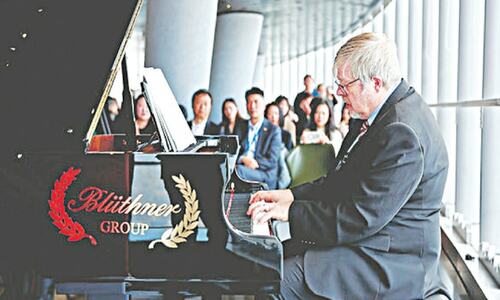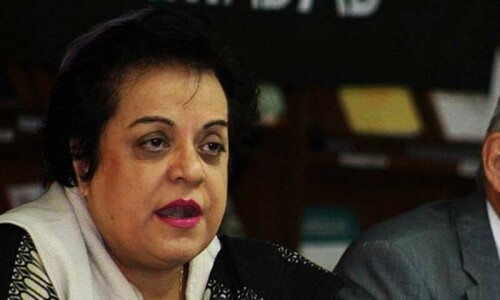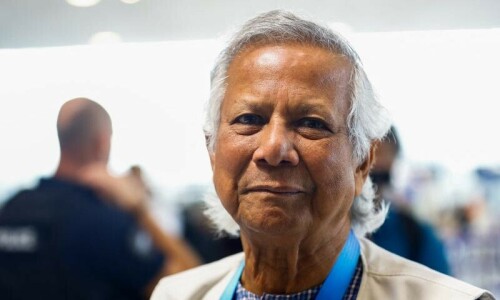 MEMPHIS (Tennessee), April 4: Thousands gathered here on Friday on the anniversary of the assassination of civil rights leader Martin Luther King, reflecting that 40 years on his dream remains unfulfilled.
MEMPHIS (Tennessee), April 4: Thousands gathered here on Friday on the anniversary of the assassination of civil rights leader Martin Luther King, reflecting that 40 years on his dream remains unfulfilled.
King had travelled to Memphis in southern Tennessee to support striking sanitation workers, and was killed by a single bullet to the head while standing on the balcony of the Lorraine Motel.
The Nobel peace prize winner was just 39 years old. Escaped inmate James Earl Ray was convicted of the murder and sentenced to 99 years in prison, but questions still linger over the assassination.
As a young man King emerged as a charismatic hero battling for racial equality from the 1956 bus boycott in Montgomery, Alabama to non-violent protest marches in the 1960s. His “I have a dream” speech in Washington in 1963 became a defining moment in the movement and roused the nation’s conscience.
But as politicians and rights leaders launched a series of speeches and candle-light vigils in King’s honour on Friday, many lamented that four decades on the divisions between black and white in America remain just as deep.
“We have among blacks, more unemployment, 2.5 million African-Americans in jail. We have an unfunded moral imperative to invest in healing the structural inequality,” civil rights leader Jesse Jackson told CNN.
“I have a dream that one day this nation will rise up and live out the true meaning of its creed: ‘We hold these truths to be self-evident, that all men are created equal,’” King told some 250,000 people in 1963 gathered at the Lincoln Memorial in the US capital.
“I have a dream that my four little children will one day live in a nation where they will not be judged by the color of their skin but by the content of their character.” King’s four words — “I have a dream” — thundered through his speech and entered into the American lexicon as symbols of the pursuit of racial equality in America.
Now some 40 years later, Democrat Barack Obama is the first African-American to have a real a chance of becoming the country’s first black president.
His Democratic rival Hillary Clinton and Republican presumptive nominee John McCain were both addressing the crowds under rain-filled skies in Memphis on Friday, as a large wreath was laid outside the motel’s room 306.
“The cause of Dr King was bigger than any one man, and could not be stopped by force of violence,” McCain told the crowd as he spoke of his sense of loss in learning of King’s death while a prisoner of war in Hanoi.
“Perhaps with more charity than was always deserved, he often reminded us that there was moral badness, and there was moral blindness, and they were not the same. It was this spirit that turned hatred into forgiveness, anger into conviction, and a bitter life into a great one.” But McCain was also heckled by the crowd when he admitted he had been wrong to initially oppose naming a federal holiday in King’s honour.
Obama, who was campaigning in Indiana, also held a moment’s silence at the beginning of his rally saying that “through his faith and courage and wisdom, Dr. Martin Luther King moved an entire nation.
“When he was killed ... it left a wound on the soul of our nation that has not yet fully healed.” Civil rights activist Al Sharpton was scathing of the rain-soaked appearances by the presidential candidates.
“The question is who’s going to do what Dr King stood for, not the question of who’s going to do drive-by appearances,” he said on CNN. “None of them are standing on the agenda of Dr King. Obama comes closest to that.”—AFP















































Dear visitor, the comments section is undergoing an overhaul and will return soon.